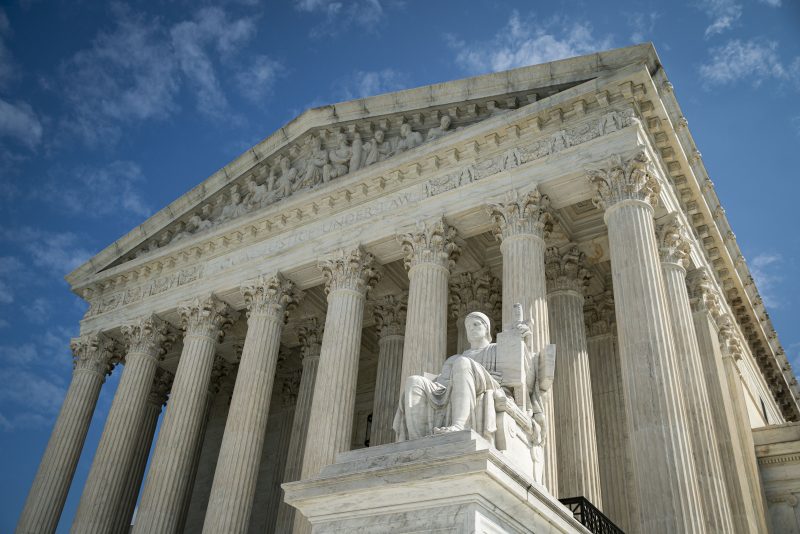
OAN’s Stephanie Stahl
3:14 PM – Monday, November 13, 2023
The Supreme Court has formally adopted what it referred to as a new code of conduct, following allegations of unethical behaviors, such as undisclosed trips and gifts from wealthy benefactors to some justices.
The court has been facing mounting pressure to take immediate action following a series of concerning reports regarding whether the justices were adhering to the established rules.
“The absence of a Code, however, has led in recent years to the misunderstanding that the Justices of this Court, unlike all other jurists in this country, regard themselves as unrestricted by any ethics rules,” the justices wrote in an unsigned statement that accompanied the code.
Advertisement
“To dispel this misunderstanding, we are issuing this Code, which largely represents a codification of principles that we have long regarded as governing our conduct.”
On Monday, the code of ethics was implemented and agreed to by all nine justices. The 14-page document included five canons of conduct on various issues, however, it did not appear to include any means of enforcement.
Additionally, the code does not impose any new requirements and leaves compliance entirely to each justice.
“The undersigned justices are promulgating this Code of Conduct to set out succinctly and gather in one place the ethics rules and principles that guide the conduct of the Members of the Court,” the justices said in an attached statement. All nine justices signed the statement.
The code, based on rules followed by lower court judges, will reportedly build on a statement the justices released in April, saying that they “reaffirm and restate” their dedication to ethics principles. This announcement did not succeed in putting an end to the criticism.
However, Sen. Sheldon Whitehouse (D-R.I.) criticized the effectiveness of this move.
“This is a long-overdue step by the justices, but a code of ethics is not binding unless there is a mechanism to investigate possible violations and enforce the rules,” Whitehouse said.
The White House maintained that the “honor system” of individual justices handling ethics issues has not worked in the past.
In recent months, three justices—Amy Coney Barrett, Brett Kavanaugh, and Kagan—have expressed their support for an ethics code. Chief Justice John Roberts, in May, acknowledged that there was room for the court to “adhere to the highest ethical standards” without specifying any particular actions.
Public trust and approval of the court are currently at near-record lows, as indicated by a Gallup Poll released just before the commencement of the court’s new term on October 2nd.
Stay informed! Receive breaking news blasts directly to your inbox for free. Subscribe here. https://www.oann.com/alerts

